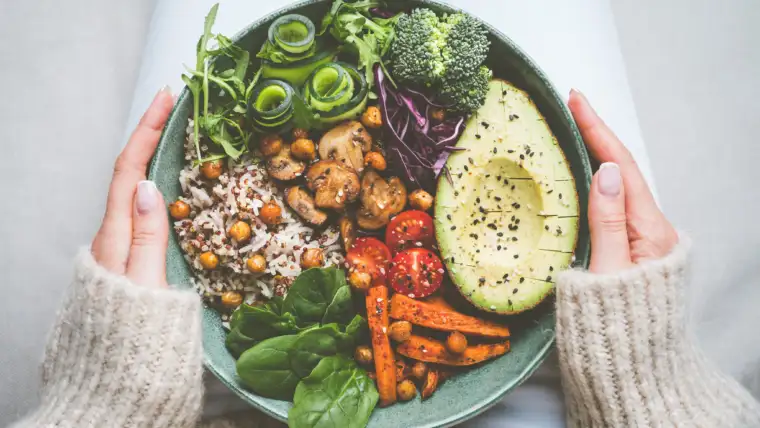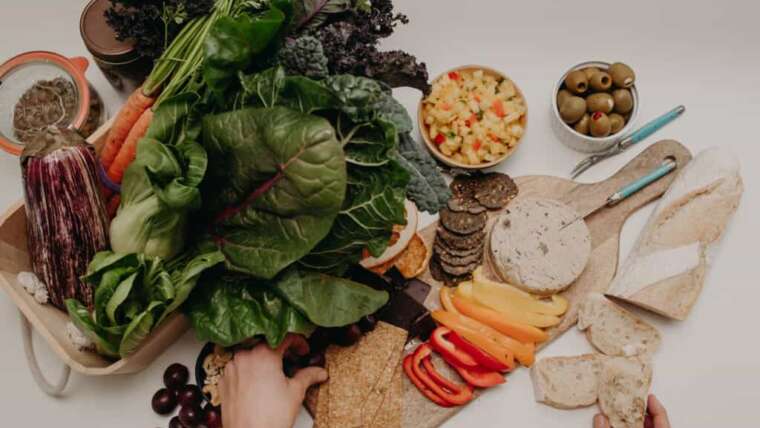Following a vegan diet is great for your health and the planet—but it’s important to make sure you’re getting all the nutrients your body needs. Some vitamins and minerals are harder to get from plants alone, and that’s where supplements can help.
This guide covers the most important supplements for vegans, why they matter, and how to use them.
Top Supplements for Vegans
1. Vitamin B12
-
Why you need it: Keeps your nerves and blood healthy.
-
How much: 250 mcg daily or 1,000 mcg twice a week.
-
Where to get it: B12 supplements, fortified plant milks, cereals, and nutritional yeast.
2. Vitamin D
-
Why you need it: Supports bones, immune health, and mood.
-
How much: 600–800 IU daily (ask your doctor what’s best for you).
-
Where to get it: Vegan D2 or D3 supplements, fortified foods, and sun-exposed mushrooms.
3. Omega-3 (DHA and EPA)
-
Why you need it: Good for your heart, brain, and eyes.
-
How much: 250–500 mg daily.
-
Where to get it: Algae-based omega-3 supplements.
4. Iron
-
Why you need it: Helps your body carry oxygen and stay energized.
-
How much: 8–18 mg daily (varies by age and gender).
-
Where to get it: Supplements, lentils, tofu, spinach, and fortified cereals. Take with vitamin C for better absorption.
5. Calcium
-
Why you need it: Builds strong bones and helps muscles work.
-
How much: 1,000–1,200 mg daily.
-
Where to get it: Fortified plant milks, tofu, leafy greens, and calcium supplements.
6. Iodine
-
Why you need it: Supports a healthy thyroid and metabolism.
-
How much: 150 mcg daily.
-
Where to get it: Iodized salt, seaweed, and iodine supplements.
7. Zinc
-
Why you need it: Boosts immunity and helps your body heal.
-
How much: 8–11 mg daily.
-
Where to get it: Legumes, seeds, whole grains, and zinc supplements.
8. Magnesium
-
Why you need it: Helps with muscle function, heart health, and bones.
-
How much: 300–400 mg daily.
-
Where to get it: Nuts, seeds, whole grains, leafy greens, and supplements.
How to Take Your Supplements
-
Try a Vegan Multivitamin
If you want something easy, go for a multivitamin that includes B12, D, iron, and zinc. -
Watch the Timing
-
Don’t take calcium and iron together—they compete for absorption.
-
Take vitamin D with a meal that has healthy fats.
-
Pair iron with vitamin C for better absorption.
-
-
Be Consistent
Take your supplements at the same time each day—like with breakfast—so you don’t forget. -
Choose Quality Brands
Look for certified vegan supplements from trusted companies with third-party testing.
Boost Nutrients Through Food Too
-
Eat a Colorful Variety
A mix of fruits, veggies, whole grains, nuts, seeds, and legumes gives you lots of nutrients. -
Use Fortified Foods
Choose plant milks, cereals, and nutritional yeast with added vitamins like B12, D, and calcium. -
Balance Your Meals
Include healthy carbs, proteins, and fats in every meal for steady energy and full nutrition.
Read more about Vegan Health Risks…
Final Thoughts: Thrive on a Vegan Diet
With the right supplements and a well-balanced plant-based diet, you can stay healthy, energized, and thriving.
It’s all about being mindful, making good choices, and giving your body what it needs to feel its best.

